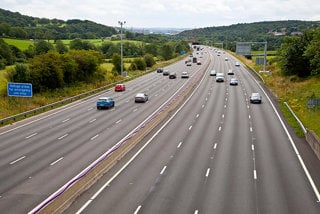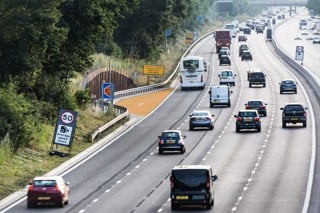The Office of Road and Rail (ORR) has published a new report that backs up claims by National Highways that smart motorways are the safest roads in the country in terms of fatalities.
'Smart' or 'all-lane running' (ALR) motorways have been under the microscope since 2019, when it was revealed that National Highways (formerly Highways England) had not fully investigated the dangers of removing the hard shoulder.
Following a BBC Panorama investigation in 2020, which found 38 people had been killed in collisions due to stranded vehicles in live lanes during a five-year period, the Government outlined a series of measures to improve ALR motorway safety costing £500 million.
A year on, Grant Shapps, the Secretary of State for Transport, commissioned a Progress Report from National Highways to set out progress on those actions, and to develop proposals about how several of them can be accelerated, going above and beyond what was originally committed to.
The Progress Report, published in April 2021, showed that fatal casualties are less likely on all lane running motorways than on conventional ones.
Shapps made a request to the ORR to undertake quality assurance of the data and evidence underpinning the conclusions arrived at regarding all lane running (ALR) motorways.
The ORR report found no errors in underlying calculations and says the comparisons about the relative safety of ALR motorways were “made in an appropriate way”.
It did highlight some issues in the tools used to underpin risk modelling that National Highways should address and made some some further recommendations to deepen the use of comparisons and enhance the understanding of risk exposure.
Shapps said: "The ORR’s report contains several recommendations for improvement that will strengthen our understanding of road safety. National Highways have agreed to all its recommendations and developed an action plan in response which is already underway.
"My commission for assurance into smart motorway safety data by the ORR is another step towards improving road safety and instilling public confidence in the safety of our roads, which make a crucial contribution to economic and social development in this country."
Edmund King, AA president, added: “We are pleased that this further analysis of the performance of ‘smart’ motorways has been made public.
“The ORR report shows that there was a ‘limited amount of data available’, so it is perhaps difficult to fully evaluate the performance of ‘smart’ motorways, hence it will be essential to have continuous monitoring and evaluation.
“We believe that controlled motorways with a hard-shoulder are the safest option and for other stretches, installing more emergency laybys on the existing network, in our view, will help improve both safety and driver confidence.
“Analysis shows that the forecast benefits have not been realised in some places, resulting in slower journey times, lower speeds and lower levels of economic benefit compared to assumptions."
The full ORR report ‘Quality Assurance of All Lane Running Motorway data’ can be viewed here: https://www.gov.uk/government/publications/orr-quality-assurance-of-all-lane-running-motorway-data-report






















Login to comment
Comments
No comments have been made yet.